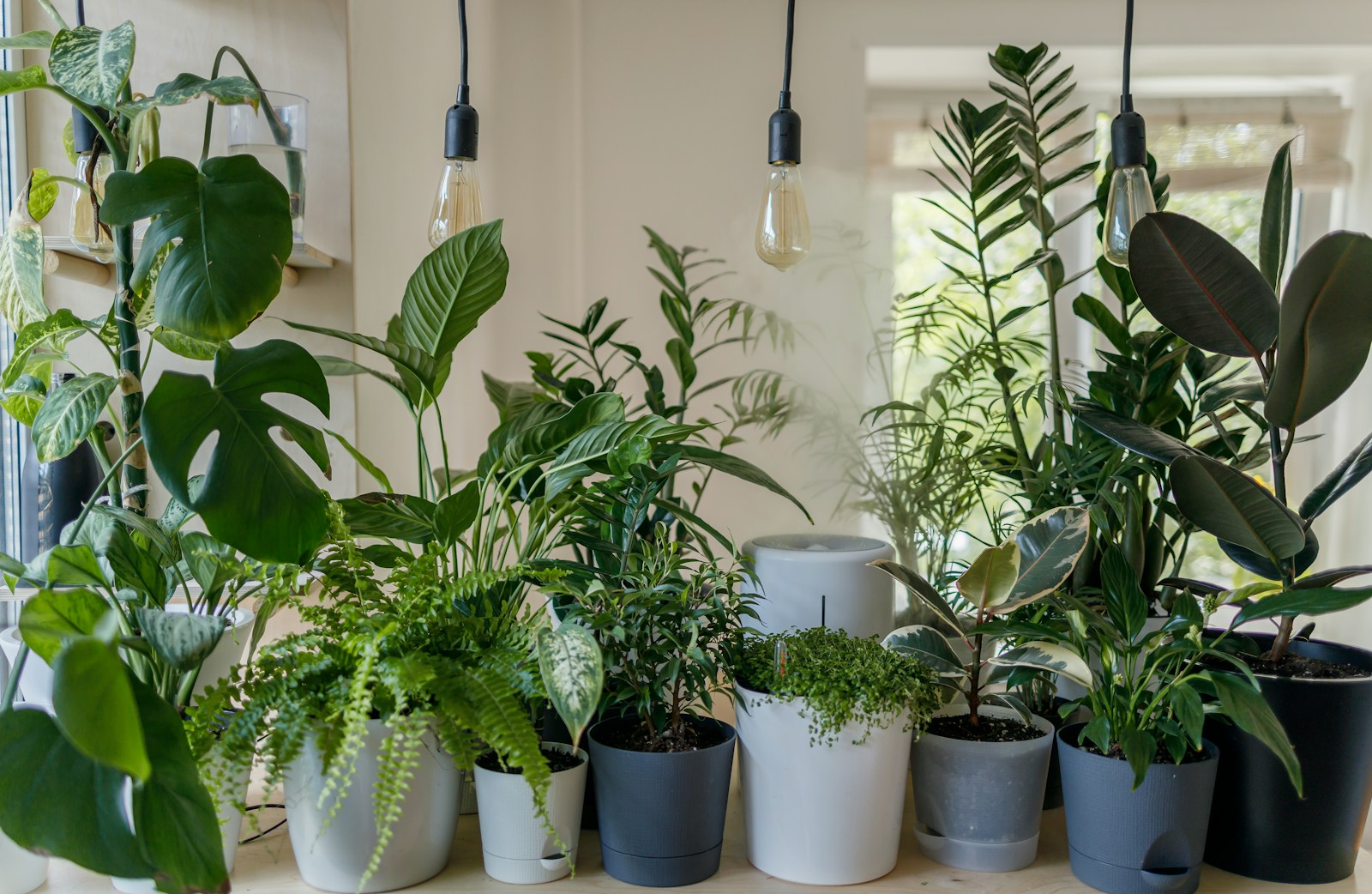Indoor plants have a significant impact on the quality of air in bedrooms. These plants possess a unique natural ability to absorb gases through pores on the surface of their leaves, a process known as photosynthesis. This mechanism is highly beneficial in enhancing air quality as it effectively removes toxins like volatile organic compounds (VOCs) such as formaldehyde, benzene, and trichloroethylene, which are commonly found in household items and can pose health risks. Multiple studies have demonstrated the effectiveness of plants in reducing the levels of such harmful toxins in indoor spaces. For example, the NASA Clean Air Study revealed that specific types of common houseplants can eliminate up to 87% of air toxins within just 24 hours. Moreover, indoor plants also play a role in increasing the humidity levels in rooms by releasing moisture into the air through a process called transpiration. This attribute is particularly beneficial during drier months as it helps to maintain balanced indoor humidity, thereby positively impacting respiratory comfort. The Science Behind Air Purification
The ability of plants to purify air is not just a myth or an old wives’ tale. It is grounded in scientific research. Plants absorb carbon dioxide and release oxygen, a process that is essential for maintaining the balance of gases in our environment. This gas exchange occurs through tiny openings on plant leaves called stomata. When plants take in carbon dioxide for photosynthesis, they also absorb other airborne particles, including pollutants.
Types of Pollutants Absorbed
- Formaldehyde: Commonly found in carpets, upholstery, and household cleaning products.
- Benzene: Found in tobacco smoke, paints, and vehicle emissions.
- Trichloroethylene: Present in solvents and adhesives.
By incorporating specific plants known for their air-purifying qualities, like spider plants and Boston ferns, you can effectively reduce indoor air pollution.
How Photosynthesis Contributes to Air Quality
Photosynthesis is not only about oxygen and carbon dioxide exchange. During this process, plants can also absorb and break down VOCs, which are prevalent in indoor environments. These compounds are often released from common household items like furniture, paint, and even electronics. The breakdown of these compounds occurs largely in the root zone of the plant, in the soil, where microorganisms assist in transforming VOCs into less harmful substances.
Enhancing Humidity: A Natural Humidifier
Indoor plants act as natural humidifiers. Through the process of transpiration, plants release water vapor into the air, which helps in maintaining optimal humidity levels. This is particularly beneficial in climates where dry air is an issue, as it can prevent dry skin, sore throats, and other discomforts caused by low humidity.
Tips for Maximizing Humidity Benefits
- Group plants together to create a mini humidifying cluster.
- Choose plants like peace lilies and ferns, which are known to release more moisture.
- Place plants near windows or light sources to enhance their growth and transpiration rates.
The impact of increased humidity extends beyond comfort. It can also reduce the incidence of airborne viruses and improve the overall texture and health of skin and hair. As plants release moisture, they contribute to a more balanced and comfortable indoor climate, which is particularly beneficial during colder months when heating systems can dry out the air significantly.
Effect on Sleep and Mental Health
The presence of indoor plants in bedrooms can have a notable influence on both physical and mental well-being. Greenery in bedrooms has been associated with improved sleep quality and overall mental health. The calming and soothing ambiance created by plants can promote relaxation and contribute to restful sleep.
Psychological Benefits
Studies have indicated that interacting with indoor plants before engaging in stressful tasks can lead to a reduction in both physiological and psychological stress levels. The placement of indoor plants in bedrooms has the potential to lower anxiety, enhance mood, and elevate overall sleep quality. This is because the presence of nature-like elements can reduce cortisol levels, the hormone associated with stress.
Plants That Improve Sleep Quality
- Lavender: Known for its relaxing aroma, which can aid in reducing anxiety and improving sleep.
- Jasmine: Its fragrance is shown to have calming effects, promoting better rest.
- Aloe Vera: Releases oxygen at night, improving air quality and helping you breathe easier.
The idea of biophilia, or the innate human connection to nature, supports the mental health benefits of having plants indoors. This connection can enhance feelings of well-being and reduce feelings of stress and anxiety. Incorporating plants into your bedroom setup can create a tranquil environment that nurtures both mind and body.
Incorporating Aromatherapy
Certain plants, such as lavender and jasmine, are not only visually appealing but also offer aromatherapeutic benefits. These scents can be particularly useful in a bedroom setting where relaxation is key. To maximize these benefits:
- Place fragrant plants near your bed to enjoy their calming effects.
- Consider using essential oils from these plants if you prefer a concentrated aroma.
- Combine scents for a personalized aromatic experience that suits your preference.
Safety Concerns With Indoor Plants in Bedrooms
Despite their numerous benefits, it is crucial to be mindful of potential safety issues associated with having indoor plants in bedrooms. Individuals with allergies may be sensitive to certain types of plants, especially flowers that release pollen triggering allergic reactions. Opting for hypoallergenic plants is essential when choosing greenery for bedrooms.
Hypoallergenic Plant Options
- Spider Plant: Known for its air-purifying abilities without releasing pollen.
- Bamboo Palm: Effective at removing pollutants and safe for allergy sufferers.
- Dracaena: Low pollen production and excellent at filtering air toxins.
In addition to allergies, some houseplants can be toxic if ingested by pets or children. It is imperative to research the safety and toxicity levels of the plants to ensure the well-being of household members. Plants such as English ivy, peace lilies, and snake plants are examples of common toxic varieties that should be kept out of reach of pets and children.
Tips for Safe Plant Placement
- Place plants on high shelves or hang them from the ceiling to prevent access by pets and children.
- Educate family members about the potential risks of certain plants.
- Use plant stands or barriers as additional precautions.
Over-watering of plants can result in mold growth, releasing spores that could lead to allergic reactions or respiratory issues. Proper plant care and maintenance are vital in preserving a healthy indoor environment.
Recognizing Toxic Plants
Understanding which plants may pose risks is critical for a safe indoor environment. Some plants contain compounds that can be harmful or even lethal if ingested. For example:
- Sago Palm: Highly toxic to pets, causing liver failure.
- Oleander: Contains toxins that can affect the heart.
- Dieffenbachia: Known as “dumb cane,” it can cause difficulty in speech and swallowing if ingested.
Safeguarding Against Pests and Mold
Healthy plants are less likely to attract pests or develop mold. Here are some tips:
- Ensure proper air circulation around plants to prevent mold.
- Regularly check for signs of pests like aphids or spider mites.
- Use natural pest control methods, such as neem oil or insecticidal soap.
Common Mistakes and How to Avoid Them
Over-Watering
Too much water can lead to root rot and mold growth. To avoid this:
- Use pots with drainage holes.
- Water plants only when the top inch of soil is dry.
- Employ a moisture meter for precise watering needs.
Neglecting Light Requirements
Plants have varying light requirements, and placing them in the wrong spot can hinder their growth.
- Research the light needs of each plant.
- Rotate plants regularly to ensure even growth.
- Consider using grow lights in rooms with insufficient natural light.
Additional Mistakes to Watch For
- Ignoring Plant Size: Some plants grow larger than expected, so consider future growth when placing them.
- Over-Fertilizing: Too much fertilizer can harm plants. Follow instructions on fertilizer packaging carefully.
- Neglecting Pruning: Regular pruning encourages healthy growth and prevents plants from becoming too leggy.
The Verdict: Are Indoor Plants Safe for Bedrooms?
The benefits of having indoor plants in bedrooms outweigh the potential risks. These plants contribute significantly to improving air quality, enhancing mood, reducing stress, and promoting better sleep. Carefully selecting plants, especially for individuals with allergies or households with children and pets, is crucial. By maintaining proper care practices and avoiding over-watering, indoor plants can create a healthier and more pleasant indoor atmosphere. Embracing nature within living spaces can foster well-being and health on various levels, making indoor plants a welcome addition to bedrooms.
Practical Tips for Maintaining Indoor Plants in Bedrooms
- Regular Cleaning: Dust plant leaves regularly to enable efficient photosynthesis.
- Temperature Control: Keep plants away from drafts and heating vents to maintain consistent temperature.
- Fertilization: Use a balanced, water-soluble fertilizer during the growing season to support plant health.
Expanding Your Indoor Plant Collection
As you gain confidence in caring for plants, consider expanding your collection. Some suggestions include:
- Fiddle Leaf Fig: Known for its striking appearance and air-purifying capabilities.
- Rubber Plant: Effective in removing pollutants and can adapt to various light conditions.
- ZZ Plant: Low maintenance and thrives in low light, making it ideal for bedrooms.
Creating a Plant Care Routine
A consistent plant care routine can ensure your plants thrive:
- Weekly Check-Ins: Assess plants for water, pest, and light requirements.
- Monthly Maintenance: Prune dead or yellowing leaves and check for root health.
- Seasonal Adjustments: Adapt care routines to accommodate changes in light and temperature.
Conclusion: Embracing Green Spaces
Incorporating plants into bedroom decor not only enhances aesthetic appeal but also supports health and wellness. By selecting appropriate plant species and practicing mindful care, you can transform your bedroom into a sanctuary that promotes better sleep, reduces stress, and improves air quality. This harmonious blend of nature and living space exemplifies the profound connection between our environment and well-being, making the inclusion of indoor plants in bedrooms a beneficial and rewarding endeavor.




